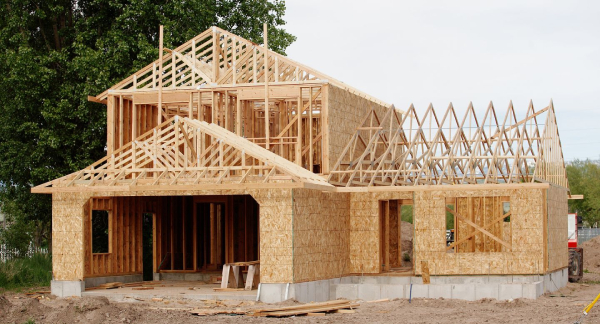If you are a house flipper, having funding to give you more money is essential. When you cannot get bank approval for traditional mortgages, where can you go for the funds you need? With a hard money loan, you can get the funding you need fast.
Before pursuing funding, you must learn about hard money loan rates and the loan term you should expect. If you are new to real estate investment or have only dealt with a traditional loan, you are likely unaware of the common loan conditions you may encounter.
We have put together this advanced guide to help you better understand what to look for when pursuing a hard money loan.
The Definition of Hard Money Loans
Hard money loans are called so because of the tangible asset attached to them. Tangible assets are often referred to as “hard assets,” which is how this loan gets its name.
Hard money loans are considered private, short-term loans offered by private companies and are not the same as traditional mortgages. Instead of being government-regulated like a traditional loan, these private lenders and private investors go by their own rules.
Why Do Real Estate Investors Use Hard Money Loans?
Many real estate investors seek this type of funding because they need cash quickly. When investors need to snatch up a property, they require fast funding, which is nearly impossible to achieve with a traditional loan. Without funding, the investor may lose out on a potential property.
Real estate investors use hard money loans for the following purposes:
- This lending type is used to purchase fix-and-flip properties to make money.
- This lending also helps bridge the gap between short-term and longer-term traditional financing, which is why it is often referred to as a “bridge” loan.
Hard money loans have become essential for real estate investors who cannot get traditional mortgages from the bank. Whether the investor has poor credit or cannot pass the stringent checks done by the bank, a hard money loan becomes attractive.
Because of the greater risks for hard money lenders, the interest rates and fees will be higher. The higher interest rates serve as compensation for lenders because of the risks they undertake.
Hard Money Loans Differ From Bank Loans
While both offer funding for real estate purchases, there are key differences between the two. You should be aware of the following differences.
- A hard money loan’s terms are much shorter, usually 6-18 months, while banks’ can reach as high as 30 years.
- A hard money loan may have interest rates up to 10% higher than bank loans. These high interest rates are caused by the risk associated with the loan.
- A hard money loan is intended for short-term real estate investors. Bank lending is often associated with owner-occupied properties.
- Hard money loans are backed by the property as collateral. Bank lending is generally backed by the property and the borrower’s credit.
What Do Hard Money Loans Fund?
Hard money loans are considered rehab loans because they cover the costs of purchasing and rehabbing a property. When you seek this type of lending, the lender will ask for written estimates for the cost of the rehab. These must be provided by the contractor who will perform the work.
Hard money lenders typically only provide funds for rehab expenses that contribute to the increased value of the property. Luxury additions, such as extravagant fixtures and swimming pools, likely will not qualify.
What Can You Expect From the Disbursement Schedule?
The funds are usually dispersed in “draws,” which are set up according to the predicted needs of the borrower. The first disbursement covers the cost of the property purchase.
You will have disbursements for materials and then multiple draws for the payment of labor. The disbursement schedule is typically drawn up at the very beginning.
EXAMPLE LOAN SCENARIOS
Is It Difficult to Get Approved for a Hard Money Loan?
One of the first questions real estate investors ask about hard money loans revolves around their approval. How can a person get approved, and how difficult is the process?
If you’ve ever dealt with a bank, you know the approval process is often lengthy. First, the bank needs to check your creditworthiness and determine if you can afford the monthly payments.
The lender will also send out an appraiser to ensure the property’s value so the lending amount does not exceed the property’s value.
Traditional Lenders vs. Hard Money Lenders
Traditional lenders offer loans for owner-occupied properties. Hard money loans are for investment properties. It takes a full 30-45 days for the lender to have the loan underwritten by a review committee. Most real estate investors do not have the time to wait that long.
When you seek a hard money loan, the lender is focused on the viability of the deal. They want to be sure you have accurately determined the cost of rehabbing the property. The lender also wants to ensure you have surmised the after-repair value correctly. The goal is for you to sell at a profit and pay off the loan amount quickly.
One of the most common reasons for real estate investors seeking this type of lending is fast funding. You can get approved and funded for hard money loans in 7-14 days. Hard money loans allow you to have the funds you need to purchase properties fast.
What Are the Common Conditions of Hard Money Loans?
Hard money lending conditions will vary according to the lender and the geographical location. There are some foundational conditions you can expect from hard money loans.
On average, hard money loans will have interest rates ranging from 7% to 12%. The origination fees tend to range from 1% to 3%, depending on the lender. There are also other fees involved, but in general, you need to understand what the average interest rate is and what closing costs may look like.
With hard money loans, your credit score does not matter as much to the lender as it would through a traditional lender offering conventional loans, though they may check it during the approval process. The loan is backed by the property, so the lender’s focus is on its potential value rather than the borrower’s creditworthiness.
It is important to note that the lender will want you to put up some of your own capital. This is called “having skin in the game.” The lender sees you as more vested in a project when your own money is involved.
Lending Conditions Are Competitive Among Lenders
Something you should also know is the competitiveness of lenders. These lenders want your business, so they are willing to compete for it by offering the best conditions.
Even if you have less than perfect credit or need 100% of the purchase price, loan options are available. It is important to research your choices and learn as much as possible before deciding on any lender.
Make sure you understand the lending services provided by the lender, the lender’s track record, normal hard money lending terms, and whether or not the lender has higher origination fees.
Hard Money Loans Have Advantages and Disadvantages
As with any financial product, there will be advantages and disadvantages with hard money loans. Since you are seeking a hard money lender, we want you to be aware of the advantages and disadvantages before you apply. Your success is our goal.
Advantages of Hard Money Loans
- Lenders close and lend money quickly, allowing borrowers to purchase properties before competitors grab them.
- Most hard money loans are backed by the property only. This means that sometimes you may not even be held personally responsible for the loan.
- The borrower’s creditworthiness is usually not a determining factor for the loan.
- You can use a hard money loan as a bridge until you can obtain longer-term financing.
Disadvantages of Hard Money Loans
- You will experience higher interest rates compared to other types of loans due to the increased risk to the lender.
- You may be subjected to additional fees other than origination fees.
- You must ensure you can finish the repairs and sell the property quickly, or it could become quite expensive.
- You may be required to purchase builder’s risk insurance, which can be expensive.
- There could be unforeseen expenses that lead to lending limitation issues.
Are Hard Money Loans the Right Choice?
With so many funding options on the table, you may wonder if this type of lending is right for you. You have already learned about hard money lending conditions, so you now need to decide if hard money will benefit your real estate investment needs.
The answer to this question relies fully on your personal finance needs. It also relies on you finding an exemplary lender. We want to help you understand the importance of finding the right lender to offer you a loan.
What Should You Look For in a Hard Money Lender?
There are many considerations for choosing a lender for your commercial property or investment property. Factor in the following when searching for a lender to meet your funding needs.
- The lender should have extensive experience handling hard money lending options. Inexperienced lenders will be more of a headache than help.
- Lenders should also have reasonable hard money loan points, interest rates, and other fees.
- Make sure the lender will provide you with the promised cash with each draw. It can be highly stressful when you need to pay for labor and cannot get the funds.
- Check to ensure the lender has a solid reputation, whether they are local or a nationwide lender. Read reviews and testimonials, and check out real estate investment forums for information on lenders and the lending services provided.
MORE EXAMPLE LOAN SCENARIOS
What Are the Requirements of a Hard Money Loan?
While hard money loan rates and requirements vary from lender to lender, there are some expectations across the board. Because this funding is not federally regulated, lenders have more room to negotiate with borrowers.
Hard Assets
These loans are backed by a tangible asset. The current value of the property and its after-repair value are critical for getting approved for a loan. The lender will look at the loan-to-value ratio and verify that there is enough equity when deciding on approval.
Ability to Repay
The lender wants to know that you can repay the loan within a short period. Although they will not delve too deeply into your personal finances, you will need to prove you have what it takes to accomplish the rehab and sell the property quickly so you can repay the loan.
Your Preparation
The lender wants to see you are a professional. A well-organized lending package is your ticket to getting approved. As a part of the package, make sure you have an exit strategy.
The more prepared you are and the higher the property’s potential value, the more likely you are to get approval from the lender. You must present the property in its entirety and “sell” it to the lender.
Down Payment
The lender will expect you to put up some of your own cash. There are some lenders that offer 100% financing options. If you do not have a down payment available, you may still have options.
Apply Today for Fast Pre-Approval
In the world of real estate investment, time is of the essence. You must act quickly to ensure you do not miss out on the best property deals.
Unfortunately, you have competition. You cannot wait around for traditional lenders to take 45 days to approve you. Thankfully, you don’t have to wait.
Get started today to learn about your options for this type of lending. We are here to answer your questions and give you the information you need to make decisions.
Our lender partners are happy to offer you fast pre-approval. You can apply online now or over the phone. We want you to understand every step of the process.







